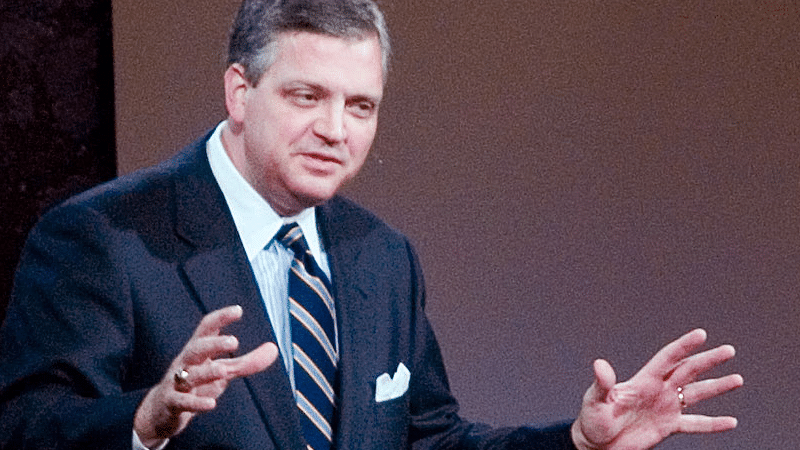
At the beginning of this year Open Doors, an international Christian NGO, published its annual World Watch List 2021. This highlights countries in which Christians face high to extreme levels of persecution. Last year there were 74 countries on the list. This means that 340 million Christians had to endure some form of persecution only because of their convictions.
This is not news. It has been going on for years. What is becoming increasingly obvious, however, is that the Western media is ignoring it. Report after report is tossed onto shelves where they gather dust – while microaggressions in privileged workplaces are often front page news.
Persecution, intolerance and discrimination against Christians can take various forms and shapes — torture, imprisonment, threats, exclusion, abuse, abduction or legal threats.
Or even death. On average 13 Christians are killed every day because of their faith, mostly in Africa, especially Nigeria. This human rights tragedy is getting worse (it increased by 9 percent in 2019). And violence is not the only driving force of persecution. There are “squeeze factors” — political and social pressure — which are not as visible and easy to detect. These are often precursors of violence because they create the cultural legitimacy for it.
It is important to put these trends and numbers into context, as other religious minorities and majorities also face persecution. Nevertheless, when all is said and done, Christians belong to the most persecuted religion in the world — and hardly anybody talks about it. In fact, around 30 percent of the global population are Christians but 80 percent and more (an estimate by an Independent Review for the UK Foreign Secretary in 2019) of people who are persecuted because of their faith are Christians.
This figure highlights the immense disproportion between global persecution of Christians and media awareness. This does of course not mean that the suffering of Christians is more important than that of Jews or Muslims (or any other religious groups) but the anti-Christian bias in many Western media outlets is disconcerting.
Why is it that the West and the global political elite are turning a blind eye to a human rights tragedy of this scale?
To give an answer to this question, it is important to put it into the context of the growing intolerance, discrimination and marginalisation Christians are facing in Europe and the general political and cultural shift feeding into these hostilities.
Nominally, Christians are a majority in European countries. But the number of committed Christians, ordinary people who want to live their faith in all aspects of life, is significantly smaller. These Christians are a minority and they are more and more confronted with legal restrictions, social hostility and marginalisation.
European Christians must increasingly swim against the stream of a “cancellation culture”. At the Observatory on Intolerance & Discrimination Against Christians in Europe we track things like marginalisation of Christians, legal threats and vandalism of Christian symbols and buildings across the continent. Sometimes the stories are appalling but they seldom make headlines.
One small example of this societal chilling effect is that a growing number of university students in the UK, who support pro-life groups are facing hostilities and even exclusion of their university societies from campuses. (This trend is not affecting only Christians. A German survey revealed that only 18 percent are willing to voice private opinions on certain issues in public. These developments should not be underestimated.)
The European elite consensus seems to be that faith must be kept out of the public square, a position which grows out of an often militant secularism. At the same time, other forms of identity, not nearly as fundamental as one’s faith, are prioritised in public and political life.
There is a big danger in this inconsistency. It will eventually de-legitimise the very notion of “tolerance”.
“Tolerance” has been turned on its head in Europe. It is even being invoked as a reason for keeping mum about the bloody persecution of Christians in countries like Nigeria, Pakistan or China. On the one hand, Europeans are constantly exhorted to be ashamed of the “intolerant” Christian past; on the other they are told to be silent about the intolerant anti-Christian present. There is a widespread hostility among European elites towards committed Christians.
Ultimately Europe’s blindness towards the suffering of persecuted Christians in the global South stems from a refusal to acknowledge its own hostility towards Christians in Europe. There is a price to be paid for this. Intolerance and discrimination could step by step socially legitimise the use of violence, as is the case in some countries of the global South. The latest hate crime report from the Organization for Security and Co-operation in Europe revealed that almost 700 violent hate crimes have been committed against Christians in Europe last year.
Our own research and analysis suggest that there are some places in Europe which are only marginally better for Christians than some of the 74 countries listed on the World Watch List.
What should be done? Awareness building and shifting the narrative are absolutely necessary. Additionally, for the sake of all, identity discourse should be focused in a way which treats a human being in a way which is not reduced to sexual orientation, skin colour, race, ethnicity, sex or political opinion.
Believers also need to convey what religious faith means for them. It is not just a hobby, lifestyle, or inherited trait. The negation of faith is an existential threat to a person’s ontological security. The right to a quest for transcendent truth must not be overruled by novel interpretations of human rights.
I would like to conclude by quoting Sir James MacMillan, who has been called “the pre-eminent Scottish composer of his generation”:
“The ignorance-fuelled hostility to religion, widespread among secular liberal elites, is in danger of colouring society’s value-free ‘neutrality’ in ways that are both bland and naïve. They are also impractical, unattractive and, I suggest, oppressive. A true sense of difference, in which a genuine pluralism could thrive, is under threat of being reduced to a lowest common denominator of uniformity and conformity, where any non-secular contribution will automatically be regarded as socially divisive by definition.”
It’s about time that we stopped fretting about petty personal identity microaggressions and started denouncing the deadly aggression which is killing thousands of poor Christians in the rest of the world.



